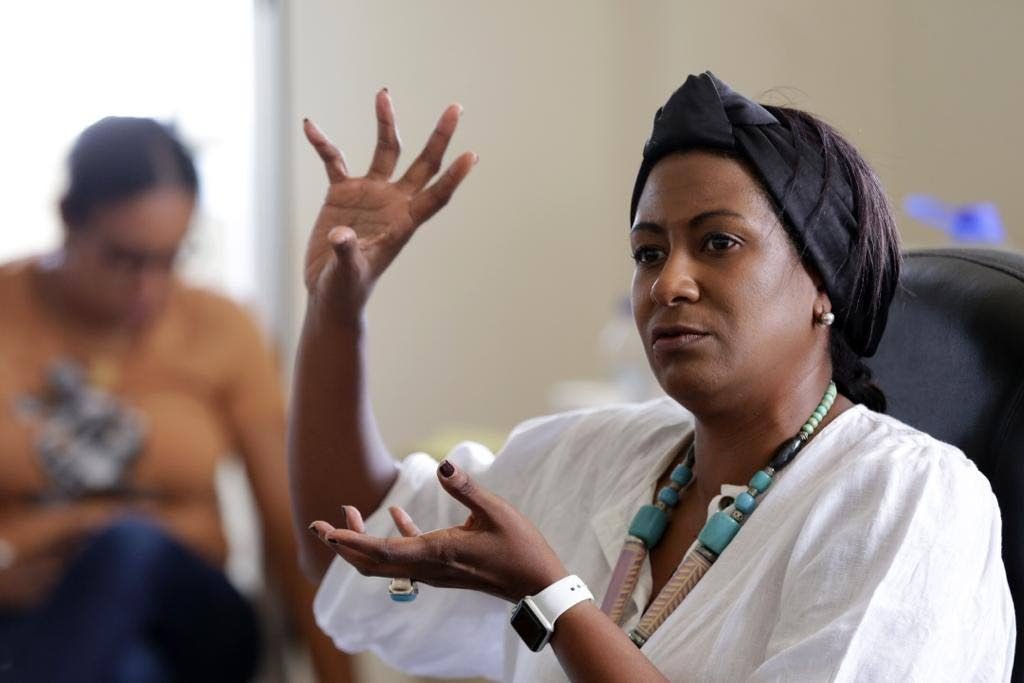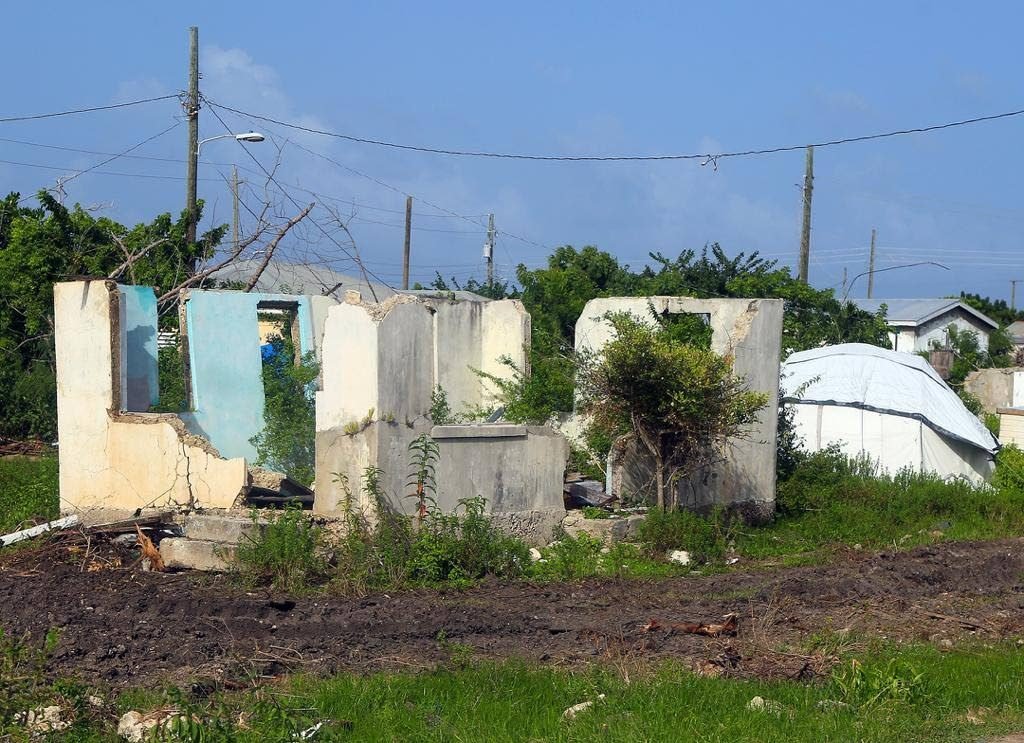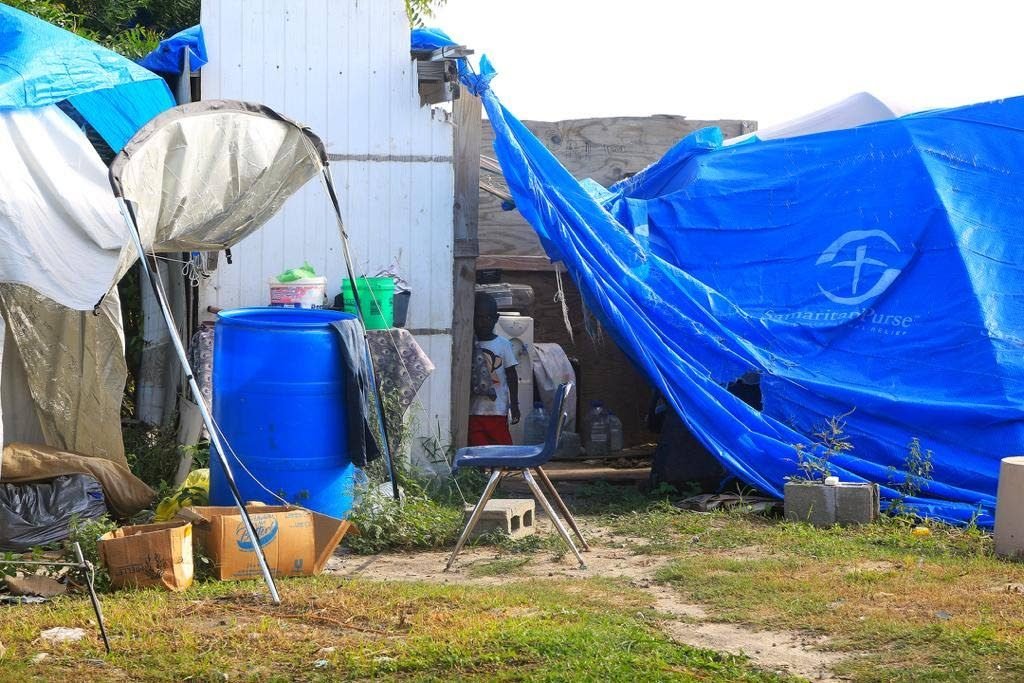Childhood trauma and hurricanes

CHILDHOOD is traumatic. Roald Dahl’s children's books were dedicated to tribulations of childhood and celebrated children’s cunning and resilience when they best monstrous adults.
From the abusive Wormwood parents in Matilda to George’s giant bully of a grandmother in George’s Marvellous Medicine, or even having your adenoids removed on a table, in his least fantastic book Boy: Tales of Childhood, being a child was rough for all his protagonists.
The overall theme of his books may show awful things happening to children, but they always survive. They are always resilient.
As in fiction, awful things happen to children in real life.
But what happens when it is not a person causing the trauma, but the wrath of nature tearing through one’s home? A hurricane is traumatic.
On September 6, 2017, the people of Barbuda experienced the trauma of having their lives upended as more than 95 per cent of the island’s buildings were either damaged or destroyed.
Days after Irma blew through, the entire island had to be evacuated to Antigua because there was no water or electricity and many homes were flattened.
Two years later, journalists from around the region were brought together by the Association of Caribbean Media Workers and Unicef Office for the Eastern Caribbean for a two-day workshop on reporting on children in disaster in Antigua and Barbuda. This workshop was to inform and sensitise the media on how to protect the dignity and human rights of children while reporting on natural hazards.

However, discussions of childhood trauma and the effects a hurricane had on children revealed issues with how the children were cared for after the storm.
Barbuda has two schools: the Holy Trinity Primary School and Sir McChesney George Secondary School. Unicef reported in 2017 that two weeks after Irma, 200 primary school pupils went back to school. Thirty-one pupils went to Green Bay Primary and the rest were integrated into several schools across Antigua. The secondary school students were also dispersed to different schools. Only the form five students were taught together in one school.
The Unicef report by Patrick Knight said, “Over 19,000 children in Anguilla, Barbuda, British Virgin Islands, and Turks and Caicos Islands have had their education disrupted following the passage of the powerful category five Hurricane Irma…They have been joined by almost 20,000 children in Dominica who are now out of school indefinitely, following Hurricane Maria’s devastation of their country on 18 September.”
Two years after Irma, John Mussington, principal of the secondary school, told the journalists he deeply regretted this decision, as the children, some of whom were separated from their families and friends in the move, were still having trouble coping. There were even complaints from the Barbudan students about xenophobic bullying from Antiguan students, and as some were separated from their families who were rebuilding their homes in Barbuda, their stress response was stronger.

Mussington also thought the children should have been given a chance to help rebuild what the hurricane took from them.
“When you have a situation where most young people were away from their homes…So no matter what corner was built would not have been sufficient if you did not take care of that first family. People must participate in the recovery. People must be empowered. People must be given that confidence that they're doing something to fix themselves.
"If you don't do that type of thing...That's one of the biggest shortfall lessons learned."
While Barbuda was being rebuilt, the children were in school, but he thought they should have been given a job, no matter how small. Simply keeping them occupied in school or play, he thought was not sufficient. Allowing children to help fix what was broken, Mussington said, was part of the grieving process.
Alma Jenkins Acosta, emergency programme co-ordinator for Unicef Office of the Eastern Caribbean, said grief, anger and sadness are important parts of life that must be felt. Otherwise those emotions can manifest in negative ways, and parents must be prepared to allow their children to deal with those difficult emotions.
Mussington had described a moment when his 18-year-old daughter had a panic attack during Irma, when water started to flow into the house. Acosta said it was a legitimate reaction that must be given space to be felt be it a child or an adult.
Because of Irma, Mussington said children started bed-wetting, some became mute. They are still triggered by their tents flapping and have a “morbid fear of thunder and lightning.” Acosta said those reactions were normal.
“It's very common that children experience anxiety, that children regress. Some children will lose their speech skills. They will be speaking and something happens, and they will stop talking and kind of shut down, because there's three basic responses to stress..fight, flight or fright.”
She said this reaction is triggered by the amygdala, a part of the brain that pays a key role in processing emotions. It is linked to the fear and pleasure response.
“Conditions such as anxiety, depression, post-traumatic stress disorder, and phobias are suspected of being linked to abnormal functioning of the amygdala, owing to damage, developmental problems, or neurotransmitter imbalance,” says the website Science Daily .
Acosta said when the body senses a threat, the amygdala triggers the reaction, causing a person to panic.
“What the amygdala is doing is saying: 'Fire, fire, fire! This is a threat, you're going to die.'
"That's what the amygdala is there for. These are not things that we make up. Our body is built in such a way that it protects you from when there is a threat.
“Now, if the amygdala just continues to fire, you know, (for) a long period of time, of course, it starts affecting other organs.”
She says denial of these feelings – grief, mourning, sadness and anger – will make one's mental health deteriorate. But parents seem to want to protect their children from these feelings. Acosta disagrees with this form of protection.
“No, they need to experience adversity because this is how they test their skills. This is how they assess a problem. This is how they gain problem-solving skills. And this is what at the end of the day is going to support them in seeing themselves at the other side of it.”
She said parents may feel uncomfortable but that is a natural part of life which must be felt.
“It’s trying, it’s difficult. It feels uncomfortable, but we need to have a tolerance for that. Because it's part of life. Life is not always beautiful.”
As stronger hurricanes are becoming the new normal, Acosta said people need to start getting both physically and mentally prepared for natural hazards.
“This generation has to be ready because they, more than us, are going to experience some kind of event, some kind of natural hazard.
“Drought is here. It’s very present. Climate change – very present. So we cannot continue to educate our children as if they have control and it's business as usual. Because actually, we're not paying good service to them.”
Acosta and Mussington agreed that two years later not enough psychosocial work was done for the citizens of Barbuda to help them recover. The church on the island provided a valuable sense of community and support, but more mental health conversations must be had to reduce stigma and help people get support.


Comments
"Childhood trauma and hurricanes"